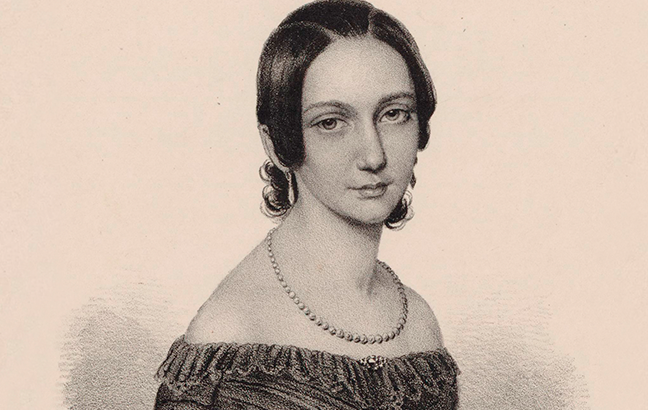Clara Schumann, born Clara Wieck, was a prominent 19th-century pianist and composer, renowned not only for her virtuosic performances but also for her significant contributions to classical music composition. As a leading figure in the Romantic era, Clara’s works reflect deep emotional expressiveness and intricate technical skill. Here, we explore ten of her most celebrated compositions, highlighting her versatility and artistry.
1. Piano Concerto in A Minor, Op. 7
Composed when she was just 14 years old, Clara Schumann’s Piano Concerto in A Minor, Op. 7, showcases her remarkable talent both as a composer and a pianist. This work, characterized by its lyrical beauty and virtuosic passages, is a testament to her early genius. The concerto, particularly its poignant Romanze, remains a favorite in the piano repertoire.
2. Romances for Violin and Piano, Op. 22
Dedicated to the famous violinist Joseph Joachim, the Romances for Violin and Piano, Op. 22, are a set of three pieces that beautifully blend the violin and piano. Each piece, while distinct in character, shares a sense of intimacy and lyrical elegance, reflecting Clara’s deep understanding of both instruments.
3. Piano Trio in G Minor, Op. 17
The Piano Trio in G Minor, Op. 17, is one of Clara Schumann’s most significant chamber works. Composed in 1846, this trio is noted for its emotional depth and structural mastery. The work balances lyrical melodies with complex harmonies, making it a staple in the chamber music repertoire.
4. Soirées Musicales, Op. 6
This collection of six character pieces for solo piano, known as Soirées Musicales, Op. 6, offers a glimpse into Clara’s expressive range and pianistic technique. Each piece, inspired by various moods and scenes, showcases her ability to convey vivid emotions through music.
5. Variations on a Theme by Robert Schumann, Op. 20
Clara Schumann’s Variations on a Theme by Robert Schumann, Op. 20, is a heartfelt tribute to her husband. The work is based on a theme from his Bunte Blätter, Op. 99. Through a series of intricate and expressive variations, Clara not only honors Robert’s musical ideas but also infuses her unique voice into the piece.
6. Four Pièces caractéristiques, Op. 5
The Four Pièces caractéristiques, Op. 5, are a set of piano pieces that demonstrate Clara’s compositional versatility. Each piece embodies a different character, from the lyrical Caprice à la Boléro to the virtuosic Mazurka. This collection highlights her ability to craft pieces that are both technically challenging and emotionally resonant.
7. Six Songs, Op. 13
Clara Schumann’s Six Songs, Op. 13, set to texts by renowned poets, are notable for their expressive depth and beautiful vocal lines. These art songs showcase her sensitivity to text setting and her talent for creating evocative atmospheres. The songs are beloved in the lieder repertoire for their lyrical beauty and emotional sincerity.
8. Prelude and Fugue in B-flat Major, Op. 16, No. 2
From the collection of three Preludes and Fugues, Op. 16, No. 2 stands out for its intricate counterpoint and clear homage to Johann Sebastian Bach. This piece reflects Clara’s admiration for the Baroque master and her skill in composing within a contrapuntal framework, blending technical prowess with expressive clarity.
9. Three Romances for Piano, Op. 11
The Three Romances for Piano, Op. 11, are intimate and poetic pieces that highlight Clara Schumann’s lyrical style. Each romance is characterized by its melodic beauty and delicate textures, offering a glimpse into her emotional world and her deep understanding of the piano.
10. Lieder, Op. 12
Clara Schumann’s Lieder, Op. 12, consists of a collection of songs that continue to be celebrated for their expressiveness and craftsmanship. These songs, set to texts by various poets, demonstrate her ability to convey profound emotions through music and her exceptional skill in writing for the voice.
Conclusion
Clara Schumann’s compositions, though often overshadowed by her husband’s works and her own performing career, are masterpieces in their own right. Her music reflects a unique blend of Romantic expressiveness, technical sophistication, and emotional depth. These ten compositions represent the best of her output, offering a rich and varied insight into the genius of one of the 19th century’s most important musical figures. Whether as a pianist or a composer, Clara Schumann’s legacy continues to inspire musicians and audiences alike.


Comments are closed